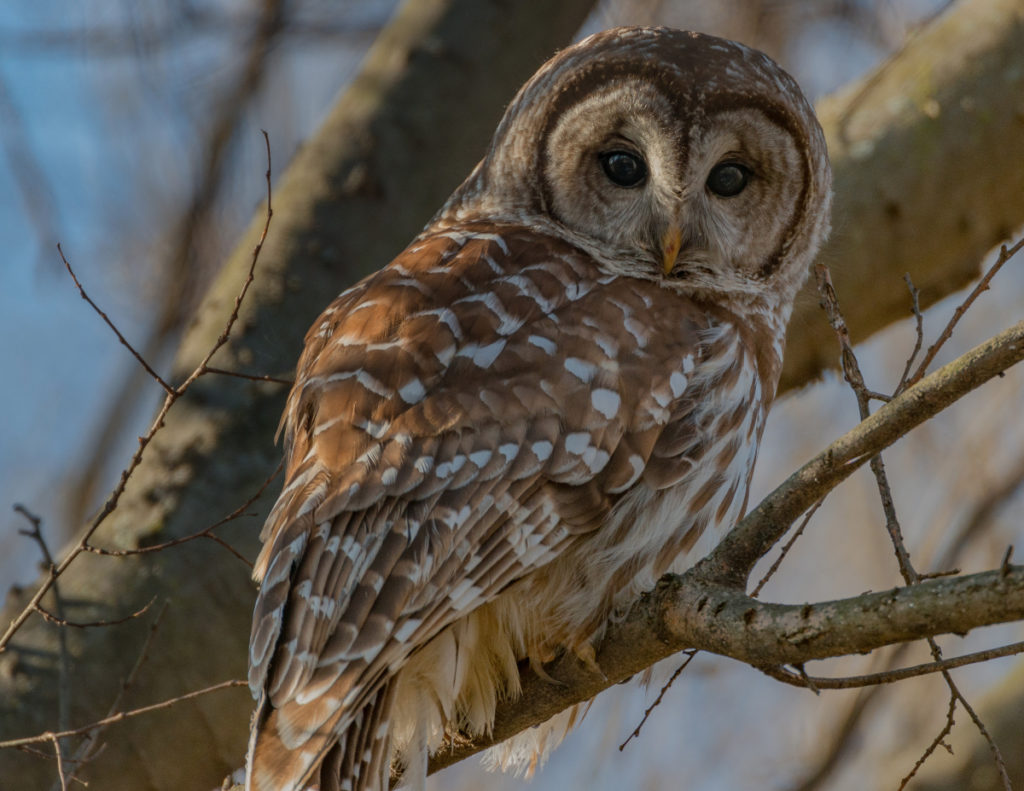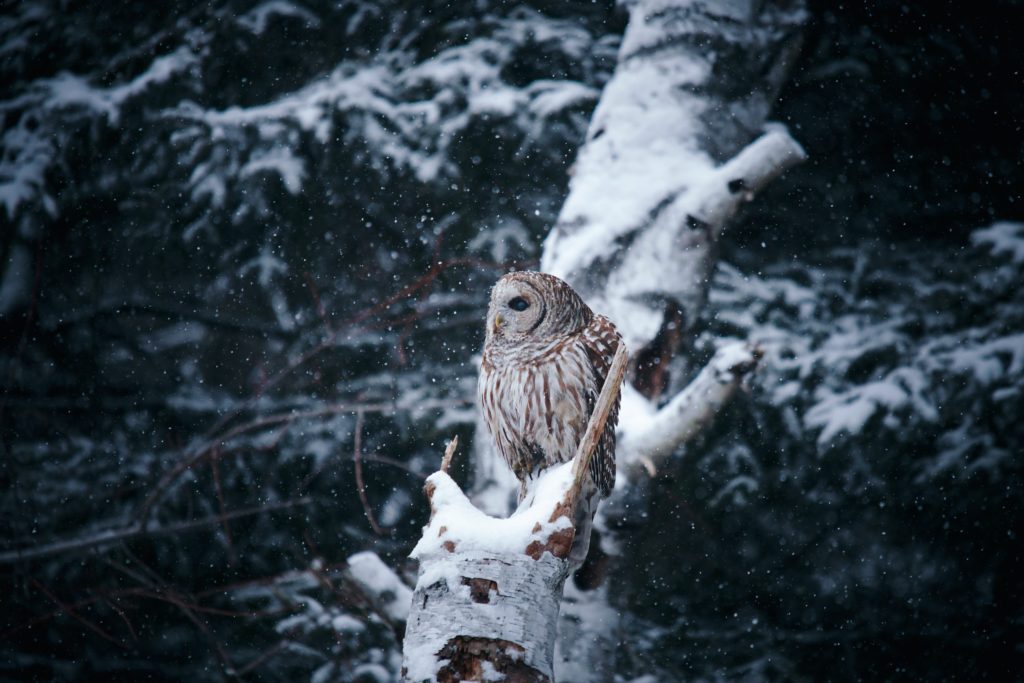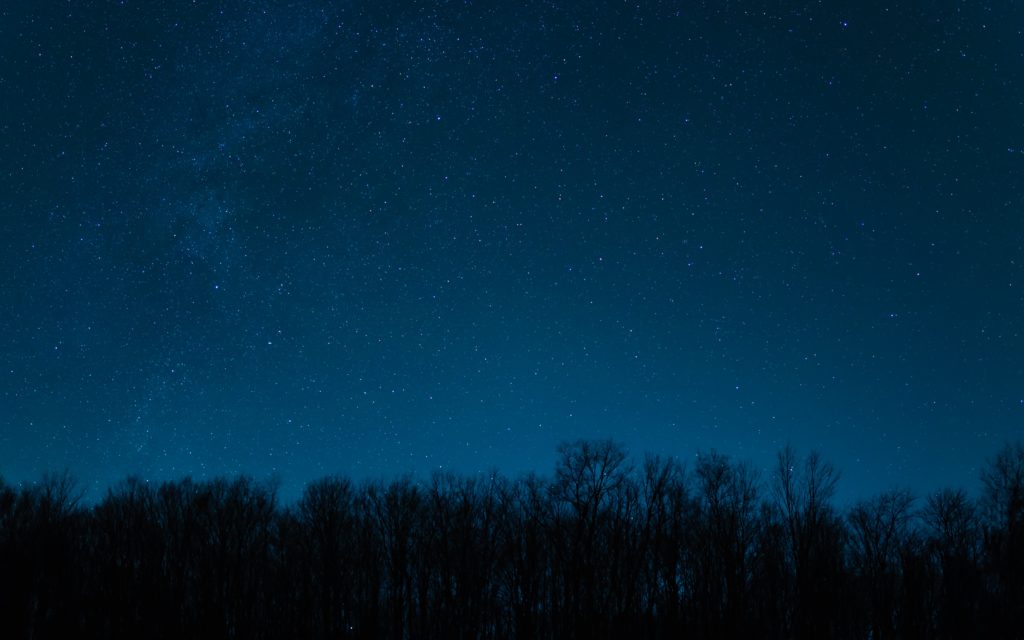“To go into the dark with a light is to know the light.
To know the dark, go dark. Go without sight
And find that the dark, too, blooms and sings,
And is traveled by dark feet and dark wings.”
– Wendell Berry
24 hours. That is the full duration of one of our days. Half lit by the sun, half not. We humans are typically diurnal (of the daylight hours) or crepuscular (twilight hours) creatures. When the late fall and winter dark arrives, most of us retreat into our homes. Once inside, we seldom venture back out. This makes sense because outside is cold and indoors is cozy warmth with family around. Fires, furnaces, and electric lighting help create a space in which we feel safe and warm and protected.
And yet … there is that other half of day. Mysterious, quiet, with its own set of sounds and smells. Because night is more of a silent time in the natural world, animals have adaptations (special skills or body parts) that allow them to be nocturnal (active at night).

One such animal is the owl. Owls can be heard hooting in December and January as they set their territories and call for their mate. Their wing feathers have comb-like fringe on the leading edge to help them fly silently so they can quietly nab an unsuspecting mouse.
Many animals, like deer, raccoon and coyote, have something called a tapatem (mirror-like membrane) in the back of their eyes that reflects light and improves low-light vision. The technical term for this is eyeshine. You may notice that your dog and cat have this too!

Feeling comfortable in the dark requires time spent there. Recognizing the sound of falling snow or the rubbing of one tree on another is a valuable skill to hone.
To better know the dark, you might try going outside by yourself or with your children and find the darkest place in your yard. Try being under or near a tree. Place a chair there and sit in the later evening or the darkness before the dawn. Allow yourself to become still. Notice your breathing and then cue into the slight and small sounds around you. Perhaps it’s the whisper of the wind. Maybe it’s a falling leaf or needle. You may hear the small pips of birds moving around or the rustle of a mouse in the leaf litter.

The more you drop in, the more aware you will become of what is going on around you. The benefits of being in the natural world extend beyond being out during the day. Sitting in the darkness allows us to breathe fresh air, slow down and just be in the arms of nature.
Hopefully you will return to your warm home refreshed and more relaxed for having embraced a bit of the other half of day.
If you would like to learn more about the beauty of night, please join us on January 8, 2022 for our Hiking into the Night program for ages 12 and older.